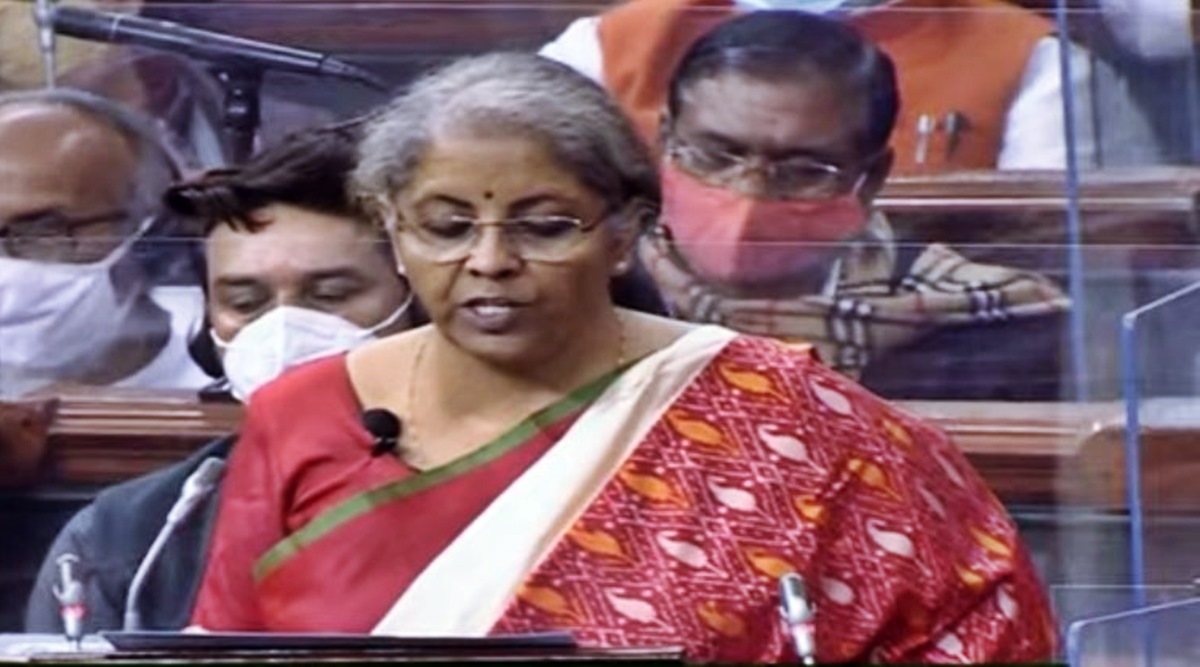 Finance Minister Nirmala Sitharaman delivering her budget speech in Parliament, New Delhi.
Finance Minister Nirmala Sitharaman delivering her budget speech in Parliament, New Delhi. Finance Minister Nirmala Sitharaman on Monday announced a slew of measures to ease the tax compliance burden on senior citizens above the age of 75, small companies and improve dispute resolution mechanisms in the Union Budget for 2021-22.
During the Budget presentation, she also announced extension of key provisions allowing startups to claim a tax holiday and individuals to claim an exemption on capital gains if they are invested in startups.
“For senior citizens (who are 75 years of age and above) who only have pension and interest income, I propose exemption from filing their income tax returns. The paying bank will deduct the necessary tax on their income,” the Finance Minister said.
She also extended a Rs 1.5-lakh additional deduction on payment of interest on loans for affordable housing till March 2022. This deduction is available to first-time homeowners who have purchased a property with a stamp value of up to Rs 45 lakh, and is available over and above a standard deduction of Rs 2 lakh on interest on home loans.
Sitharaman also announced extension of the eligibility period for startups to claim a three-year tax holiday on profits till March 31, 2022.
The scheme — which is applicable for startups incorporated after April 1, 2016 — allows startups to claim a 100 per cent deduction on profits for three consecutive assessment years out of seven years if the company’s turnover does not exceed Rs 25 crore.
Besides this, in a move to boost investment in startups, the Finance Minister also extended by one year an exemption on long term capital gains tax (LTCG) available to individuals who invest capital gains in acquiring 50 per cent or more of the equity stake in a startup. Additionally, the Budget also announced that dividend payments to real estate investment trusts (REITs) and infrastructure investment trusts, (InvITs) would be exempt from tax deductions at source (TDS), in line with the move to tax dividends on shares in the hands of the shareholder announced in the previous Budget.
Aim to lower compliance burden
The government is reducing the compliance and tax burden on taxpayers by reducing filing requirements, extending additional deduction on affordable housing loans and making dispute resolution faceless. The government is also giving a boost to startups by extending the eligibility period for tax holidays for startups and for tax exemptions on capital gains invested in startups.
Sitharaman also raised the turnover threshold at which a company is required to have its accounts audited to Rs 10 crore from the earlier Rs 5 crore for companies that carry out 95 per cent of their transactions digitally.

She also announced a sharp reduction in the period in which an assessment can be re-opened by tax authorities to three years from six years earlier, with the exception of serious cases involving concealment of income of over Rs 50 lakh in a year which may be reopened for up to 10 years.
“Even this reopening can be done only after the approval of the Principal Chief Commissioner, the highest level of the Income Tax Department,” the Finance Minister added.
She also announced the constitution of a tax dispute resolution committee which would be available to anyone with a taxable income of up to Rs 50 lakh and disputed income up to Rs 10 lakh, noting that the faceless committee would ensure efficiency, transparency and accountability.
The minister also announced that the Income Tax Appellate Tribunal (ITAT) would also be made faceless. “All communication between the tribunal and the appellant shall be electronic. Where personal hearing is needed, it shall be done through video-conferencing,” she added.
Moreover, it was announced that pre-filling in income tax returns would now include details of capital gains on listed securities, dividend income and interest from banks and post office, besides details of salary, tax payments and TDS to improve ease of filing.
The Finance Minister also proposed to reduce the deadline for filing of belated returns by three months, which would mean that belated returns would now have to be filed three months before the end of the relevant assessment year or before the completion of the assessment, whichever is earlier.